One of the very first pieces of equipment we buy to support the photographic needs is a tripod. A tripod is hands down a really important addition to a working photographer’s kit. A tripod is very well appreciated by landscape photographers, photographers working in the studio, and other applications where a long period of hand holding a camera is either not possible or feasible.

A steady camera will result in very steady images, without any shake or blur. Sometimes, we lose a lot of details and sharpness due to minor shakes which are not very visible when we look at it, but when transferred to a computer and zoomed in, it shows a slight shake at times. This affects the overall sharpness of the image. A tripod is the best solution to overcome this challenge unless you are bound not to carry a lot of equipment and look forward to placing the camera on a steady place before shooting.
There are several kinds of tripods (all tripods however have the same goal) depending upon the nature of use. From the basic light weight beginner tripods for small entry level DSLRs to light weight carbon fibre constructed travel tripods, there is one to suit your specific needs.
Tripods have been constructed with aluminium and plastics for a long time. Aluminium is lighter than many other metals and can be shaped well. Eventually, metal parts were being reduced from tripods and different materials like light weight carbon fibre was used to make tripods. Carbon fibre is strong and very light, which is why travel tripods are made out of carbon fibre to make them light weight and easy to carry while maintaining all the strength and the payload capacity.
Heavy tripods are used by landscape photographers and those who work in the studio, where hand-holding the camera for a long time is not an option. For landscape and studio use, tripods are generally preferred heavy, as they can take heavy cameras and lenses and would not shake or move when loaded. Some tripods have hooks built-in them to hang your heavy camera bag or anything useful, as it helps to weigh down the tripod to a greater extent.
As the needs suggest, we have listed our picks for tripods considering usage and pricing.
1. Overall performer: Vanguard Alta Pro 263AB 100
この記事は Asian Photography の August 2018 版に掲載されています。
7 日間の Magzter GOLD 無料トライアルを開始して、何千もの厳選されたプレミアム ストーリー、9,000 以上の雑誌や新聞にアクセスしてください。
すでに購読者です ? サインイン
この記事は Asian Photography の August 2018 版に掲載されています。
7 日間の Magzter GOLD 無料トライアルを開始して、何千もの厳選されたプレミアム ストーリー、9,000 以上の雑誌や新聞にアクセスしてください。
すでに購読者です? サインイン

Ethics of Wildlife Photography: Shooting and Editing
Wildlife photography is a captivating art that brings us closer to the beauty of nature and its inhabitants. However, it comes with a significant ethical responsibility. Wildlife photographers have the power to shape how the world perceives animals and their habitats, but this power also comes with the need to act with integrity, both in the field and during the editing process. This article explores the ethical considerations in wildlife photography, focussing on two critical aspects: shooting and editing.
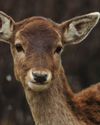
THE ART OF CREATING COMPELLING WILDLIFE PORTRAITS
Wildlife photography is a mesmerising genre, where the beauty of nature meets the technical skill of the photographer.
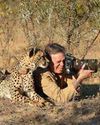
HOW TO STAY SAFE WHILE PHOTOGRAPHING WILDLIFE
Wildlife photography offers a unique and exciting opportunity to capture the beauty of animals in their natural habitats. However, it also comes with risks, both to the photographer and the wildlife. Proper precautions must be taken to ensure that both parties remain safe. Here’s a guide on how to stay safe while photographing wildlife.

Mastering Animal Behaviour: Understanding wildlife to improve your photography
Wildlife photography is an art that goes beyond having the right equipment or perfect lighting.
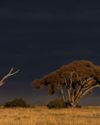
A Mission for Preservation
From the wild lands of Kaziranga to the battlegrounds of Masai Mara, Jayanta Guha's passion for wildlife conservation burns bright as the sun. His unique way of capturing often-endangered animals have brought him a lot of praise and accolades over the 5+ years of his photography career. Asian Photography caught up with him about his passion for wildlife conservation, his unique style & workflow and his future.
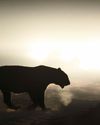
Framing The Future
A hobby that started with casual safaris, Ratish Nair's career has seen him embark on various new journeys. Today, we see him with a new-found passion of teaching and wanting to give photographers high-quality experiences under his guidance and expert tours. Asian Photography caught up with him about his passion for mentorship, his experiences on the field, mishaps and more. Excerpts:
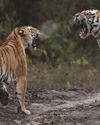
ATR - For a Cause
Not many can achieve a feat that wildlife photographer Aarzoo Khurana has. Not only is she a popular wildlife photographer - she is also, perhaps the only photographer to have visited All Tiger Reserves (ATR) under a specific time for her ATR project. Asian Photography spoke to her about her passion, wildlife conservation and her project, which is now exhibiting in different parts of the country. Excerpts:

The Chennai Photo Biennale is back
The Chennai Photo Biennale is back with the fourth edition, featuring a host of exhibitions and programmes from 20 Dec 2024 till 16 March 2025.

DJI launches Osmo Action 5 Pro starting at ₹35000
DJI has unveiled its latest action camera, the Osmo Action 5 Pro, boasting several industry-first features that elevate it to professional standards.
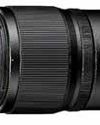
Nikon India announces NIKKOR Z 50mm f/1.4 at ₹79,995
Nikon India Pvt. Ltd. introduces the NIKKOR Z 50mm f/1.4, a full-frame, FX-format compatible Z mount lens with a 55 mm diameter mount that provides abundant light and great flexibility of expression.